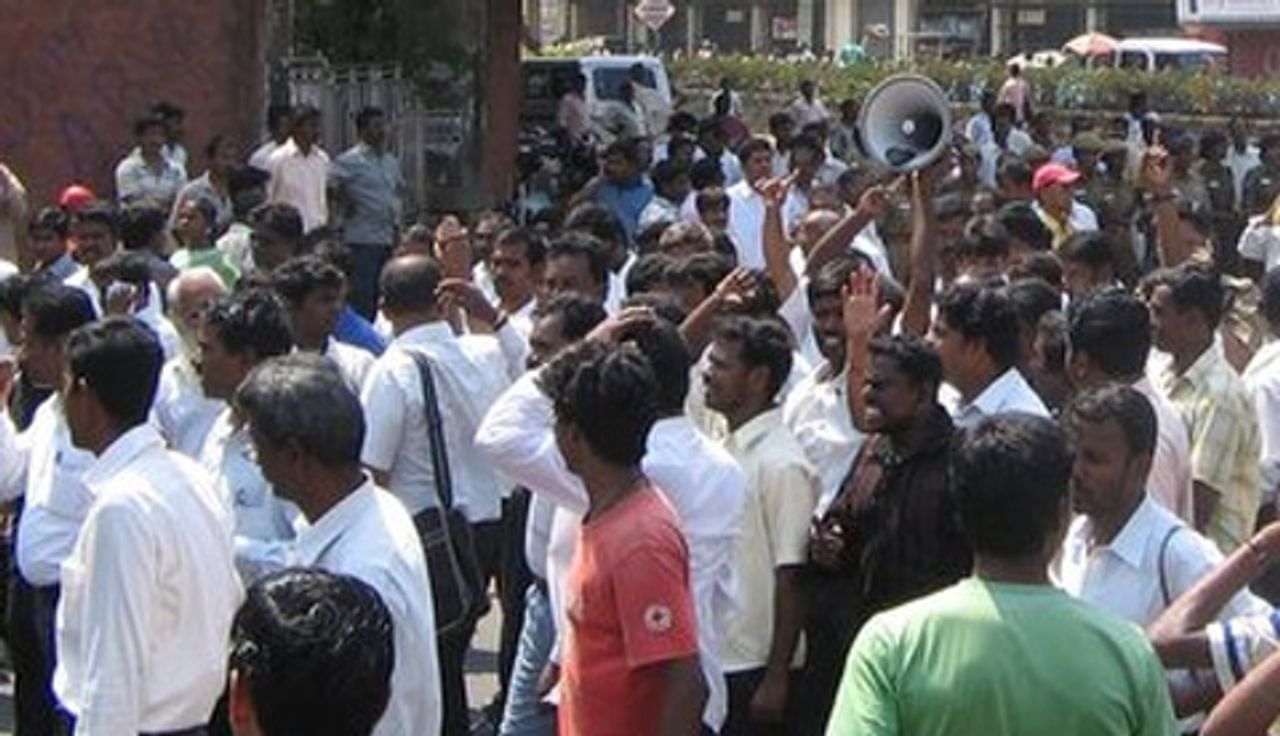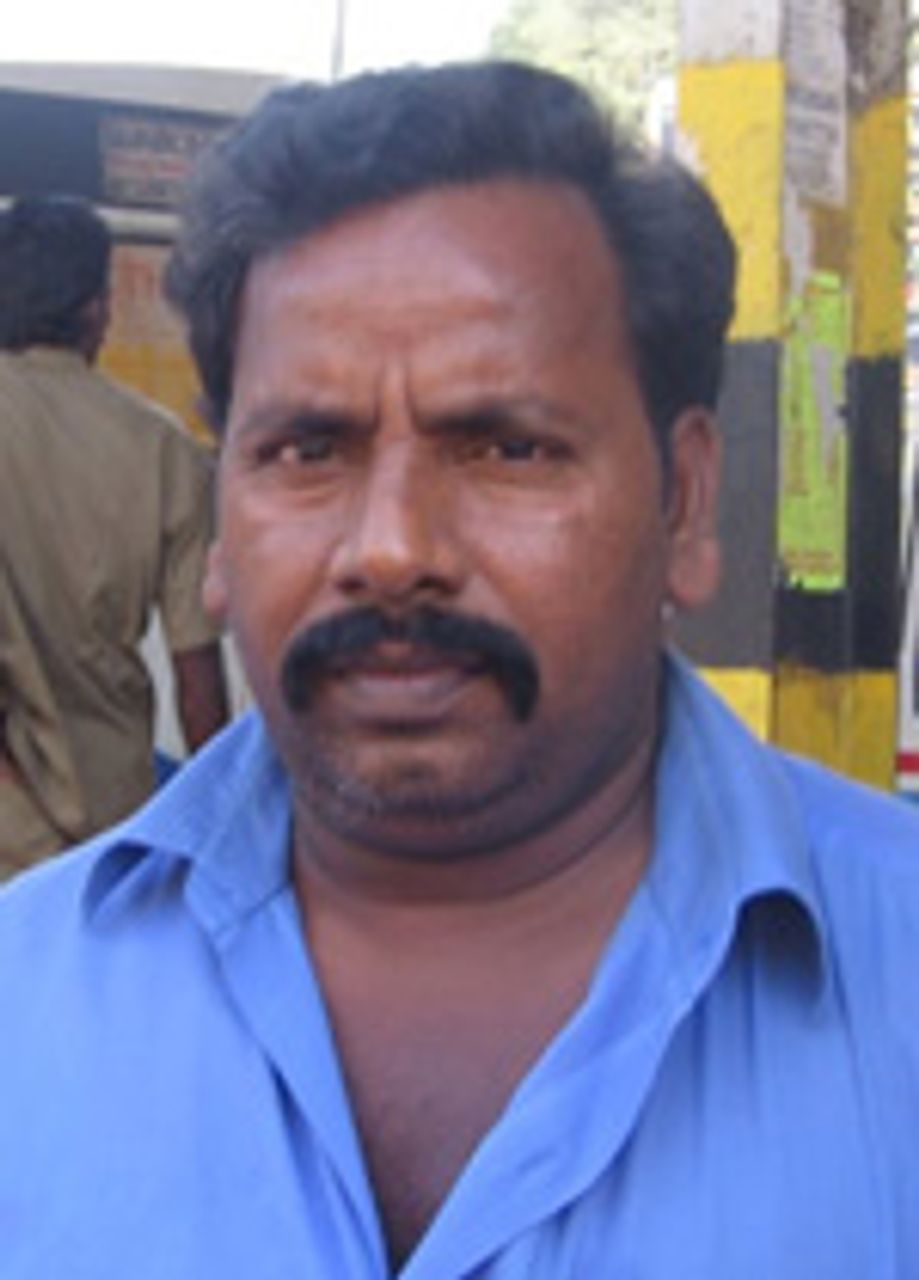Protests, shop closures and strikes against the war in Sri Lanka took place across the southern Indian state of Tamil Nadu yesterday despite the efforts of the state government to prevent the statewide bandh or general shutdown.
There is widespread outrage throughout India over the plight of the Tamil minority in Sri Lanka as the Colombo government pursues its communal war against the separatist Liberation Tigers of Tamil Eelam (LTTE). An estimated quarter of a million civilians have been trapped by recent fighting and hundreds have been killed. Concern is particularly acute in Tamil Nadu, which has longstanding historical and cultural ties with Sri Lanka.
In Chennai (Madras), the state capital of Tamil Nadu, the protests were relatively small. Many shops were closed but few public sector workers participated because of threats issued by Chief Minister M. Karunanidhi. One employee told the WSWS: "We are against this war and killing innocent Tamils in Sri Lanka. We are not participating in today [agitation] because the government would take reprisal action against us."
 A section of the demonstration
A section of the demonstrationThe Dravida Munnethra Kazagam (DMK)-led state government mobilised an estimated 8,000 police, including rapid action and commando units, to prevent street marches and protests. According to the Times of India, more than 600 people were arrested across the city in clashes with police—some 290 were remanded in custody for alleged violence. State Director General of Police K.P. Jain had threatened to use the draconian National Security Act (NSA) against anyone damaging public property.
Before the protest, the government shut down colleges and universities to try to prevent students from taking part. An emergency executive committee meeting of the DMK and the Congress Party on Tuesday denounced the protest. Karunanidhi hysterically declared that "this bandh is an attempt of conspiracy to topple the government". He previously branded it "unlawful".
A lawyer, apparently acting at the government's instigation, applied to the Supreme Court for a prohibition order against the bandh. But in the context of rising public anger, Chief Justice K. G. Balakrishnan denied the request, declaring: "Everyone has the democratic right to express their feeling and protest on issues."
Yesterday's bandh was called by the Sri Lankan Tamils Protection Movement (STPM) to demand a ceasefire. The STPM is an umbrella organisation of Tamil Nadu-based parties, including the Viduthalai Chiruthaigal Katchi (VCK), Marumalarchi Dravida Munnethra Kazagam (MDMK), Pattali Makkal Kachchi (PMK) and Tamil National Movement (TNM) as well as the Communist Party of India (CPI).
All of them make an overtly communal appeal to Tamil nationalism and are seeking to exploit outrage over the Sri Lankan war to boost their standing in preparation for national elections scheduled for April and May. No attempt was made by these parties and associated trade unions to combat the state government's threats against public sector workers. Rather than organising a mass protest, they urged people taking part in the bandh to stay at home.
WSWS reporters spoke to a number of people about the war in Sri Lanka. At the High Court in Chennai, around 50 lawyers held a demonstration and marched onto the main road before being confronted by police. According to the Hindu, 23 were arrested and remanded into judicial custody.
Anto, a 28-year-old lawyer, said: "I support this bandh. I wish that it would develop more vigorously. The Tamil Nadu government is indifferent to the rising feelings of the support of the Tamil Eelam people's struggle against oppression by the Sri Lankan government.
"In the case of the Congress-led national government, they are helping the Rajapakse government to bombard the Tamil people in Sri Lanka. Sri Lankan air force personnel came here to get the training in Tambaram, Madras. See the Deccan Chronicle—it has published the photos of the Sri Lankan air force personnel."
 Deva Raj
Deva RajState employees at a bus depot had been prevented from striking. Deva Raj, a bus driver, explained: "Here the government declared transport as an essential service. We are not participating in the strike.
"On humanitarian grounds, the war must be stopped. The United Nations must mediate this. But the UN advised the LTTE to surrender arms. Without any guarantee how can anyone surrender? We have seen powers like the US simply ignore the UN and occupy Iraq. I think both [Sri Lankan President] Rajapakse and [LTTE leader] Prabhakaran must initiate talks to resolve this crisis. Here political parties are not really interested, but they want to capitalise [on the war] for their own political advantage."
Ravi, a bus conductor, said: "The UPA [Indian] government with the DMK as its partner has been saying that it will send [External Affairs Minister] Pranab Mukherjee to Sri Lanka to stop the war against the Tamil people. But after dragging its feet all these months, the government sent Mukherjee to Colombo a few days back. He went at the invitation of Rajapakse who only gave a 48-hour ultimatum to the cornered LTTE. Now that time is up. The Sri Lankan government is now using it to justify continued war [saying the LTTE did not heed the call]."
Large protests took place in other parts of Tamil Nadu. In the textile city of Coimbatore, about 25,000 small factories shut down and most shops were closed. In Tirupur, 200,000 workers went on strike, forcing the closure of around 5,000 knitwear factories. In Kanyakumari on the southern tip of Tamil Nadu, fishermen staged a total strike. In the district of Thiruvaroor, demonstrations were held in more than 60 different places.
